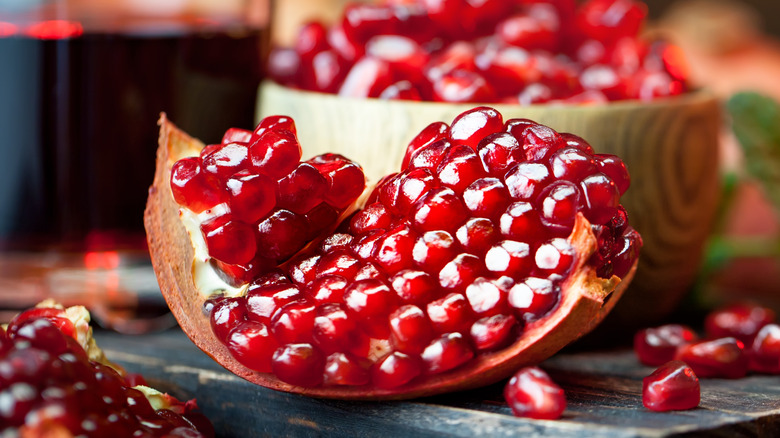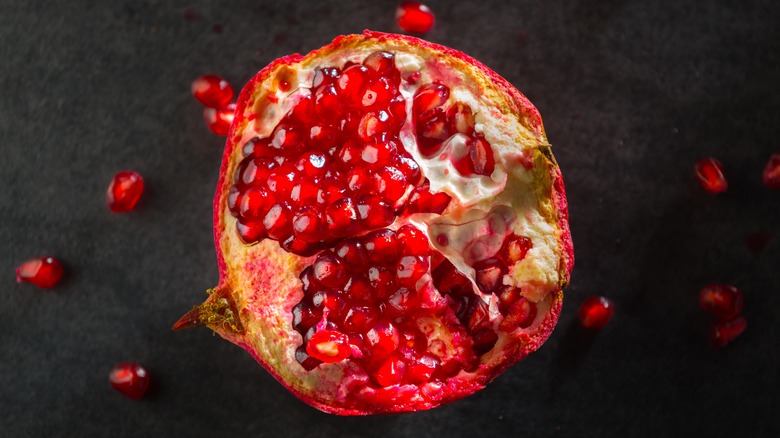Why People Smash Pomegranates At Turkish Celebrations
Hopefully, at least once in your life, you've had the opportunity to indulge in a pomegranate. The trick to opening up a pomegranate is a sharp knife and some ingenuity, but it's all worth it in the end once you're cutting through its thick flesh to reach jewel-red seeds. The multitude of seeds clustered inside the fruit are not only gorgeous in color and perfect for decorating desserts or squeezing into juice, but their sweet-acidic floral flavor is delicious. Pomegranates are, and seemingly have always been, a symbolic as well as nourishing fruit. Madera Chamber says that the fruit is viewed throughout the Middle East, India, Greece, and Egypt as an emblem of fertility due to its many seeds. The fruit has been cultivated since its discovery in the Indus valley (located in South Asia) and has been an imperative part of holidays and celebrations throughout that part of the world ever since, across ethnic and religious lines!
The fruit is so revered that it has even starred in ancient myths such as the story of Hades and Persephone, worked as a representation of many goddesses such as Hera and Aphrodite, and appears in tests of faith such as the Quran and Ancient Iranian Christianity (via Royal Botanical Gardens). The point is that there is more to the pomegranate than what meets the tongue and in modern-day Turkey, the rosy fruit still is involved in many of their celebratory traditions.
More than just a fruit
The pomegranate is not a part of some new fruit fad to hit the grocery stores, this particular fruit is as old as human civilization itself. Many cultures — especially those around the Mediterranean and the Middle East — have imbued pomegranates with deep meaning and have used them in ceremonies or as a way to symbolize significant events. According to the Daily Sabah, in Turkey specifically, pomegranate is the fruit of abundance and it is quite common to find the fruit or an image of it floating around households. Additionally, the pomegranate is the fruit of good tidings and it is very common that during celebrations signifying new beginnings like New Year's Eve or weddings someone will be tasked with smashing the fruit on the ground to bring good luck.
Baraka Bits says that the pomegranate or "nar" in Turkish is widely found during the winter months (hence another reason it is common at New Year's festivities) and is squeezed for fresh juice and served everywhere. But the fruit-smashing Turkish New Year's celebration is a key aspect of this holiday and you'll find that, should you go visit the country around this time, people will smash a pomegranate at the foot of the front door in the hopes that as many good-luck seeds spray out. The more seeds fly, the better the luck!

